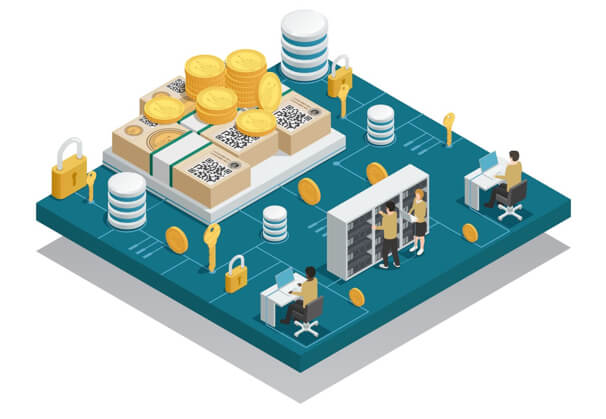Industry overview
In the financial industry, which is centuries old, strategy and positioning have probably changed the most. This industry, which monitors the money and credit of the market, has found its lead in centuries of change. With the new, tailor-made variety of products and services, the industry has moved more towards customer orientation. The major financial institutions in the game are now more focused on customer needs and demands. You manage money for individuals and invest in other people or institutions for them. It includes commercial and investment banks, insurance companies, hedge funds, credit card companies, consumer finance companies, accounting agencies, and brokerage firms.
The first digitization of financing products came when William Porter developed “Trade Plus,” an electronic trading platform now known as “E Trade,” a subsidiary of Morgan Stanley. The financial industry has come a long way since the introduction of Trade Plus. They make it easier to start and run businesses, large and small, by handling the financial strength of these companies, making them one of the most successful industries. The industry has also seen some dark periods. One of the most recent is Black Monday (October 19, 1987) when the NYSE suffered its largest one-day loss in history, almost 26% of its value Carrerizma.
Blockchain in data protection
Blockchain technology has been bringing wonders to the data protection industry in recent years and is being adopted by almost every data-centric industry to do their bit for data protection. The technology distributes its storage and data over a wide network chain and enables access to different owners, which makes manipulation difficult. From Bitcoin to personal data, blockchain is spreading its wings either through public blockchains with public keys or through private blockchains for private institutions. It is considered one of the most secure data protection technologies ever. The industry is expected to reach $ 20 billion in industries like healthcare, BFSI, sports, and more by 2024 On the way to data science. This makes companies more independent and helps maintain their competitive advantage over the market. It offers encryption and validation, secures data storage and is not vulnerable.
Blockchain in finance
The financial industry, like any other industry, invests a lot of money in research and development to keep up with the technological revolution. Security breaches are one of those where these institutions try more to focus on the security of their data. This industry has always been the first to introduce the latest technologies that can aid in their operations. In between lies blockchain technology, which appropriately distributes the ledger to make it impenetrable. The technology has its own advantages over the industry such as faster transactions, minimized credit risk, elimination of collateral costs and improved transparency. It also decentralizes the data its property is spread across the network and alerts those owners once the data is tempered. Each block of this data chain is protected by cryptography, which is represented by its public address.
One of the real-life examples of the application of blockchain technology is the banking industry. Loan repayment is an issue that is paramount for these institutions, and blockchain here can make it trackable for them. Each transaction can be stored from start to finish in the blocks, which banks can use to easily track the diversion of the borrowed funds. Another example is payments. Domestic payments have evolved over the past few years, but international payments still take days to figure out, and recording your every move is a whole new task. This is where blockchain comes in and eliminates the hectic work by reducing time and costs and making them more efficient.
Conclusion
With a multitude of uses for blockchain technology, every industry, whether it’s healthcare or entertainment, is choosing it. When it comes to securing data sources, this technology challenges traditional approaches at all levels. Now that the time has come to fuel the digital revolution, this technology can help maintain the relationship between the technology and user data and privacy. It can help fight data management and increase the focus on privacy. It reduces delays and conflicts in transactions and can provide the actual data in real time. Around 77% of fintech companies are expected to use blockchain technology in accordance with this policy Financial Express shows the future scalability of this technology. Blockchain can serve as a bridge for traditional institutions with technological gaps they have from a new business model and bring them all onto one platform.



1 thought on “How Blockchain has Impacted the Finance Industry”